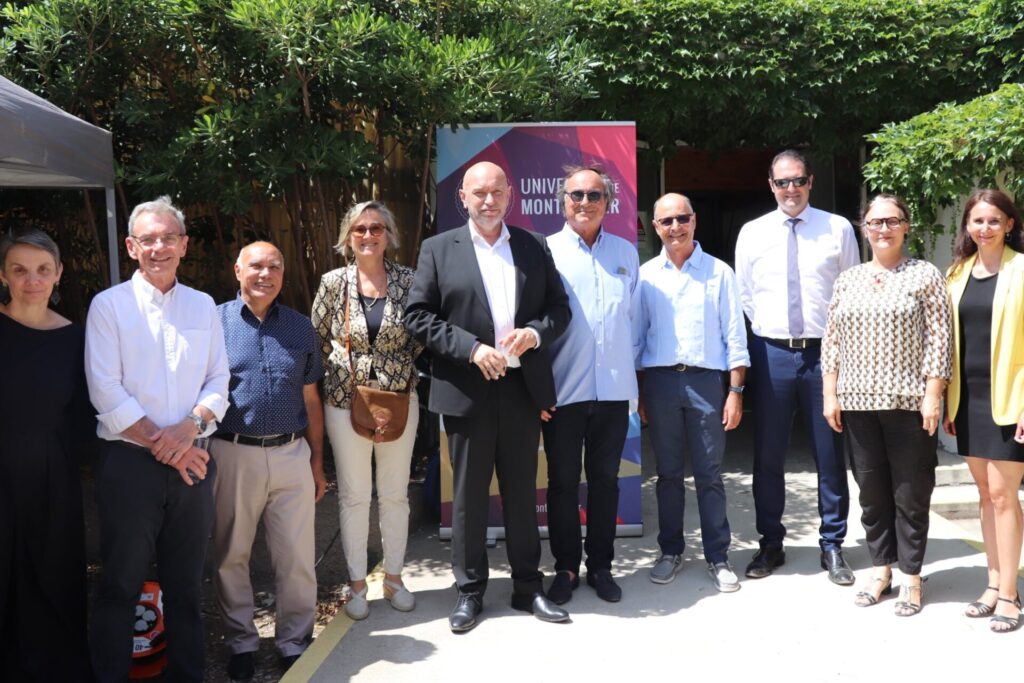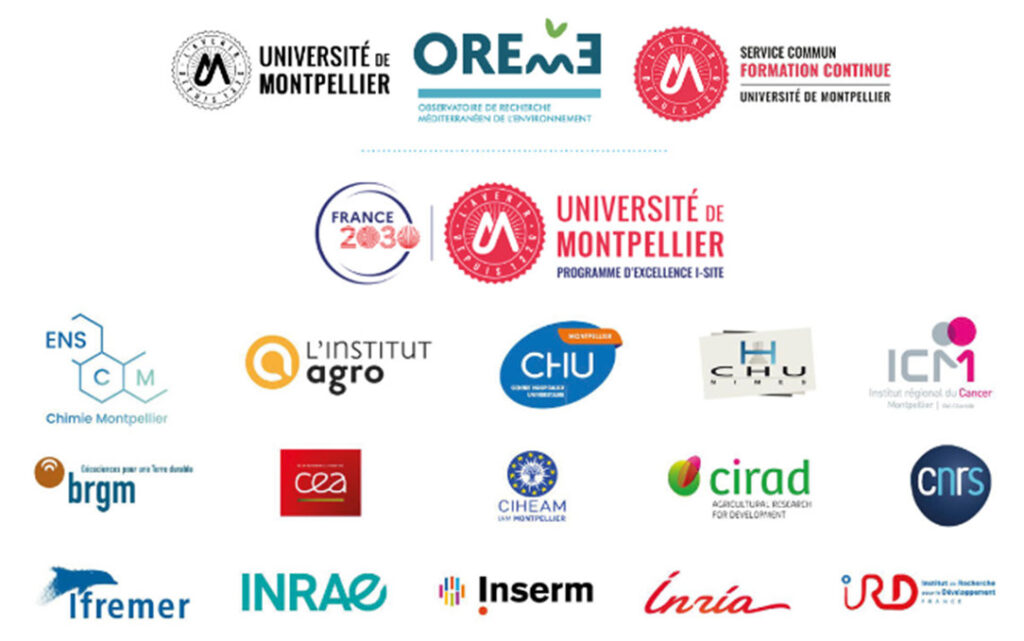The new aquaponics training unit at the University of Montpellier has just been inaugurated.
On Wednesday, July 5, 2023, the University of Montpellier inaugurated its new aquaponics training unit at the Mediterranean coastal environment station in Sète, in the presence of Philippe Augé, President of the University of Montpellier, Éric Servat, Director of the Montpellier Environment Research Observatory (OSU OREME), Laurence Weil, Director of Continuing Education (SFC UM), and François Pierrot, Deputy Director of the Strategic and Structural Investment Committee.
Aquaculture is a sector that is growing by 5 to 10% per year worldwide, with approximately 125 million tons/year. In recent years, aquaculture production has exceeded fishing production. This booming sector aims to reach 200 million tons per year by 2030 and employs 70 million people. To ensure the training and upskilling of professionals in this sector, the University of Montpellier is opening a training unit in aquaponics.

"This Wednesday, François Commeinhes and I inaugurated the SMEL Sète aquaponics training unit at the University of Montpellier. This unit benefits from the support of our university's I-SITE program of excellence and will enable continuing education trainees to learn the practical skills of aquaponics, aquaculture production, and aquarioculture," said Philippe Augé, President of the University of Montpellier.
Meeting market needs
The professional training program in aquaculture offered by the Continuing Education Department of the University of Montpellier (SFC-UM), based at the Mediterranean Coastal Environment Station (SMEL) in Sète, covers development, exploitation, and promotion activities related to living aquatic resources and the management of their environment (aquaculture, aquaponics, recreation and culture, public aquariums, etc.).
The basis for the development of this training program is to respond to market needs, promote knowledge gained from research, mobilize the expertise of researchers and our transnational professional network, deliver multi- and interdisciplinary skills, and implement them during the training cycles. This comprehensive approach was designed within the regional ecosystem, which brings together research and higher education institutions specializing in Mediterranean and tropical agricultural development (OSU OREME, IFREMER, IRD, CIRAD, CNRS, IRSTEA, INRAE, etc.).
Training with clearly defined objectives
The University of Montpellier wants to develop this training program and has set itself the following objectives:
- The transformation of part of the training program into a hybrid e-learning and face-to-face system,
- The creation of innovative pilot production units to provide hands-on experience for students at SMEL,
- The creation of new degree and qualification programs,
- Interact closely with vocational training institutions, R&D institutions, and your professional network to transfer skills.
- Leverage and strengthen your professional network to develop links between former learners, the professional community, and students, and make our professional training program more visible and accessible.
Thanks to the MUSE Take Off 3 and 4 programs, the continuing education department at the University of Montpellier is developing new training tools, including:
- An aquaponics production unit: a combination of integrated high-value-added plant and animal production in a water recirculation system. Products include vegetables, medicinal plants, aromatic plants, and other aquatic organisms for consumption or ornamental purposes. The strengths of this system are water savings, biosecurity, the possibility of above-ground installation close to markets, the creation of micro-enterprises, and improved performance.
- A biofloc production unit: producing aquatic organisms for consumption or ornamental purposes in a consortium of aquatic microorganisms such as bacteria, phytoplankton, and zooplankton for self-purification of the water. The strengths of this system are the same as those described above.
- A production unit for ornamental marine aquatic organisms using a water recirculation system. The strengths of this system are the same as those of the other two production units, with the added benefit of better protection for wild fishery resources.
Practical information:
Inauguration date: July 5, 2023.
Location: Mediterranean coastal environment station in Sète, 2 rue des chantiers, 34200, Sète.
